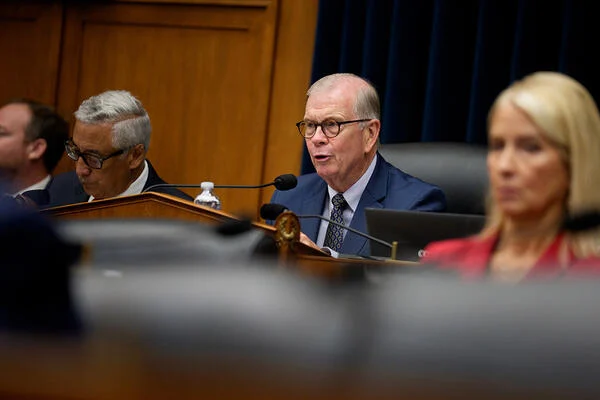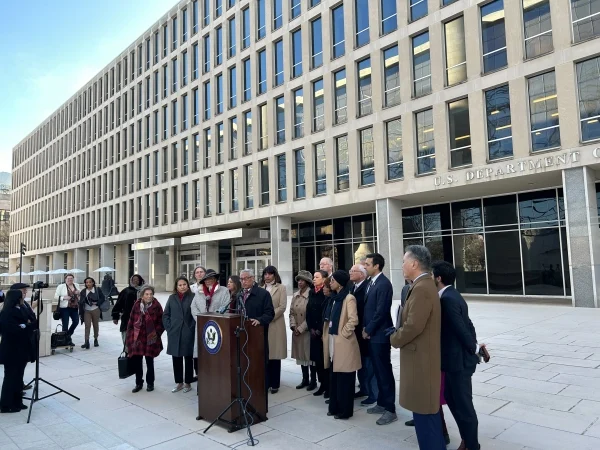In today’s complex academic landscape, fostering environments where faculty feel seen, valued, and celebrated is not merely ideal—it is essential. I consider myself truly blessed to work in a setting where individual strengths are not only recognized, but embraced and uplifted. This culture of respect and inclusion inspires innovation, deepens collaboration, and models the professionalism we strive to instill in our students.
The culture within my field of nursing education is a powerful determinant of its success. When faculty are encouraged to bring their full identities, skills, and experiences to their roles, they are more likely to thrive—and so are the students they teach. The National League for Nursing (NLN, 2016) identifies inclusive excellence as a foundational element in achieving the mission of nursing education. In practice, this means creating an academic environment where diversity of thought, background, and expertise is actively celebrated rather than merely tolerated.
This article explores the transformational power of celebrating faculty strengths and differences. From building psychological safety to driving innovation, supporting faculty development, modeling professional behavior, and addressing harmful dynamics where strengths go unrecognized—every facet of this conversation underscores a simple but profound truth: when we uplift the unique contributions of every faculty member, we all rise. Grounded in current literature and lived experience, this discussion offers both reflection and practical strategies for cultivating inclusive, dynamic academic cultures where educators and students alike can thrive.
The Power of Celebrating Faculty Strengths and Differences
Building an Inclusive Culture Where Everyone Thrives
The National League for Nursing (NLN) highlights inclusive excellence as a foundational element in nursing education’s mission (NLN, 2016). When academic environments honor individual faculty identities, skills, and experiences, they foster a genuine sense of belonging. Faculty feel valued and safe to share their ideas and perspectives, which enriches teaching, scholarship, and service.
Psychological safety—the confidence to speak up and contribute without fear—is a hallmark of strong, high-functioning teams (Cote, 2023) Celebrating differences nurtures this safety, allowing faculty to learn from one another, co-create solutions, and remain deeply engaged. In such environments, faculty report higher satisfaction, motivation, and commitment to institutional success.
Driving Innovation and Excellence Through Diverse Perspectives
Diversity in faculty expertise—including clinical specialties, research interests, cultural backgrounds, and pedagogical styles—fuels creativity and adaptability. The American Organization for Nursing Leadership (AONL) emphasizes that inclusive leadership and diverse teams produce superior outcomes by expanding problem-solving capabilities and preventing groupthink (AONL, 2023).
Similarly, the Center for Creative Leadership (CCL) underscores cognitive diversity as a key driver of innovation and organizational agility (CCL, 2022). When faculty leverage their varied knowledge and strengths, they develop curricula and scholarship initiatives that meet the complex demands of evolving academic systems. This diversity enhances student learning and better prepares graduates for collaborative, interdisciplinary practice.
Supporting Faculty Growth and Retention
Faculty development tailored to individual strengths is both empowering and practical. The American Association of Colleges of Nursing (AACN) 2021 Essentials stress the importance of recognizing diverse faculty roles and competencies in clinical practice, teaching, leadership, and scholarship (AACN, 2021).
Acknowledging unique talents and providing personalized development opportunities fosters professional growth and job satisfaction. Celebrating differences also promotes equity by valuing non-traditional faculty roles and diverse backgrounds, helping address ongoing faculty shortages and turnover challenges.
Impact on Students and Professional Role Modeling
Students learn far more than nursing content – they learn how to be professionals by observing the academic environment around them. When faculty celebrate their differences and collaborate respectfully, students witness positive professional behaviors: openness to diverse ideas, willingness to seek expertise, and mutual respect.
This modeling is critical for preparing my students to succeed in diverse healthcare teams. It teaches them to appreciate colleagues’ strengths, seek guidance when needed, and cultivate lifelong learning and collaborative leadership (AACN, 2021). A faculty culture that honors difference sends a powerful message: diversity is a strength, and teamwork grounded in respect is essential for success.
When Neglecting Differences Undermines Success
It is important to recognize that environments where faculty strengths go uncelebrated can become draining and disengaging. When faculty feel pressured to “know everything” or risk being undervalued, collaboration and growth are stifled. This dynamic, often cunning and unspoken, quietly drains enthusiasm and reduces institutional effectiveness.
Similarly, the absence of respect for diverse perspectives may lead to isolation or frustration, diminishing individual and group performance. Such environments can become a toxic vacuum, pulling down morale, creativity, and innovation if left unaddressed.
The good news is that this cycle is reversible. Intentional efforts to create a culture that celebrates differences enable academic nursing programs to avoid these pitfalls and cultivate thriving, dynamic communities of faculty and learners.
Practical Steps to Celebrate Faculty Strengths
Effectively celebrating faculty strengths begins with intentionally identifying the unique talents of each member. Helping faculty recognize their individual abilities and understanding how their strengths complement those of their colleagues has great potential to promote self-confidence and foster a collaborative culture where diverse skill sets are appreciated and integrated into the team’s collective success (AONL, 2023).
Tailoring professional development to align with faculty members’ specific expertise and interests is equally important. The American Association of Colleges of Nursing (AACN) emphasizes the value of personalized development opportunities that support diverse faculty roles, helping to sustain motivation and professional growth (AACN, 2021). When faculty feel their unique contributions are acknowledged, engagement and job satisfaction improve significantly.
Promoting cross-disciplinary collaboration further enhances innovation within academia. Encouraging partnerships across different specialties broadens perspectives and enriches teaching and research initiatives (CCL, 2022). Such collaboration nurtures creativity and leads to more comprehensive solutions to the challenges faced in education and my field of nursing practice.
Recognizing faculty achievements publicly is a powerful way to reinforce the value of diverse contributions. Regular acknowledgment in faculty meetings, newsletters, emails, announcements, and award ceremonies help build a culture of appreciation and respect, motivating faculty to continue excelling (NLN, 2016). This visible celebration of success creates a positive and inclusive atmosphere that benefits the entire academic community.
Inclusive leadership plays a vital role in fostering this environment. Leaders who openly value differences and actively ensure that all voices are heard create psychological safety, encouraging faculty to express ideas and concerns freely (Cote, 2023). Such leadership models respectful behavior and promotes equity, which is foundational to a thriving academic setting.
Lastly, encouraging open communication is essential. Establishing forums where faculty can share ideas and challenges without fear of judgment strengthens relationships and builds trust (AONL, 2023). This openness facilitates problem-solving, supports mutual respect, and cultivates a dynamic and engaged faculty culture.
Personal Reflection: A Blessing to Work Where Strengths are Celebrated
I feel deeply fortunate to work in a setting where individual strengths are truly recognized and celebrated. The atmosphere is refreshing, inspiring, and uplifting. Faculty members collaborate with genuine respect, knowing their unique contributions are valued.
This type of environment not only enhances job satisfaction and professional growth but also creates a vibrant academic culture that students can see, learn from, and aspire to become part of. It models the very professionalism and respect for diversity that we seek to instill in future nurses, professionals, and leaders.
Conclusion
Celebrating faculty strengths and differences is more than a feel-good initiative—it is a strategic, evidence-based approach to building thriving academic communities. As this article has explored, when faculty are encouraged to bring their authentic selves to the table, they contribute more meaningfully to teaching, research, service, and institutional success. An inclusive culture that values diversity of thought, background, and expertise not only promotes professional growth and innovation but also serves as a powerful model for students preparing to enter diverse and dynamic professional settings.
The consequences of neglecting faculty strengths are real and damaging—leading to disengagement, frustration, and diminished outcomes. But the good news is that these challenges are not insurmountable. With intentional leadership, open communication, and genuine appreciation for each individual’s contributions, academia can cultivate environments where all faculty feel respected, empowered, and inspired.
I am deeply grateful to work in such an environment where strengths are celebrated, collaboration is encouraged, and every faculty member is seen as a valued contributor to our shared mission. What makes this especially meaningful is that I was also educated in a similarly supportive academic culture—one that emphasized respect, inclusion, and the importance of honoring individual strengths. Although the institution where I earned my nursing degrees differs from the one I serve today, both share a commitment to uplifting others and fostering environments where faculty and students alike can thrive.
This continuity of values has been both inspiring and affirming. It reinforces my belief that when we prioritize celebrating differences, we not only build stronger teams—we shape the future of education for the better. It is my sincere hope that more academic programs will adopt this mindset, ensuring that faculty across all institutions can experience the same sense of belonging, purpose, and possibility.
Ultimately, when we recognize and celebrate the strengths each person brings, we build a future for education that is inclusive, resilient, and ready to meet the complex demands of tomorrow’s world—with confidence, compassion, and unity.
Dr. Maureen Hermann earned her BSN (1995), MSN (2011), and DNP (2016), with an emphasis in leadership, from Saint Francis Medical Center College of Nursing in Peoria, IL. Dr. Maureen Hermann is an Associate Professor at Creighton University, Omaha, Nebraska.
References
American Association of Colleges of Nursing. (2021). The essentials: Core competencies for professional nursing education. https://www.aacnnursing.org/Portals/42/AcademicNursing/pdf/Essentials-2021.pdf
American Organization for Nursing Leadership. (2023). AONL nursing leadership workforce compendium 2023. https://www.aonl.org/system/files/media/file/2023/08/AONL_WorkforceCompendium.pdf
Center for Creative Leadership. (2023, November 1). The research foundations for REAL: A framework for leadership action in equity, diversity, & inclusion. https://cclinnovation.org/realresearch/
Cote, C. (2025, May 20). How to build psychological safety in the workplace. Harvard Business School Online. https://online.hbs.edu/blog/post/psychological-safety-in-the-workplace
National League for Nursing. (2016). Achieving diversity and inclusive excellence in nursing education: A vision for the future. https://www.nln.org/docs/default-source/uploadedfiles/professional-development-programs/vision-statement-achieving-diversity.pdf










